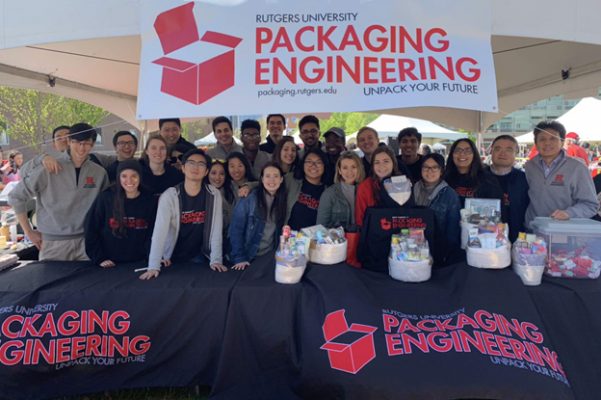Nationwide, industries have been struggling to find well-trained workers, and the packaging and flexible packaging industries have not been immune. For the rest of this year, FlexPack VOICE® will profile some of the colleges, universities, and schools that have developed programs to train our future workforces. In this edition, we talk to Martin Golden, adjunct professor in the Rutgers University Packaging Engineering program in New Jersey.
FlexPack VOICE®: Tell us a little bit about the packaging program at your school.
Martin Golden: The Rutgers packaging engineering program is the nation’s only packaging program housed within an engineering school. The Rutgers-New Brunswick campus is perfectly situated in central New Jersey, near the major urban centers of New York City and Philadelphia and the iconic Jersey Shore, surrounded by some of the nation’s leading companies, such as Amazon, Estée Lauder, Colgate-Palmolive, Johnson & Johnson, L’Oréal, Merck & Co., Inc., Mondlez International, Stryker, and Unilever. The packaging program is within the applied sciences in an engineering major. Its distinctive, multidisciplinary curriculum combines engineering fundamentals with hands-on discovery, using products and equipment in real-world situations. Packaging engineering students draw on chemical, industrial, materials, and mechanical engineering skills to design and create a broad array of packages. Students benefit from established partnerships with leading packaging companies that work on research and product testing and that offers hands-on practical and pre-professional training internship and co-op opportunities.
FPV: What are the key skills that employers are looking for when hiring from your program?
MG: Understanding how to work with the internal and external teams in the development of packaging and packaging projects. Having good exposure to material development, sustainability, package design, understanding human factors, CAD, testing, and documentation development. Understanding compliance and related requirements. Some of the key skills that employers are looking for are the ability to work with internal and external teams in the packaging development process. Also, there is the exposure to and the capability to work with procurement, product development, quality, marketing, sales, equipment engineering, and operations.
FPV: What emphasis do you put on flexible packaging?
MG: Emphasis on sustainable flexible packaging includes an understanding of flexible packaging materials, including paper, foils, and films and understanding barrier and package performance needs in relation to the product contained within the flexible package structure. Also, understanding resin and paper technologies in addition to printing, and converting technologies.
FPV: What do you see as the future challenges in the packaging industry?
MG: Besides the fact that packaging is a growing industry and there is an overall demand for packaging engineers, the increased concern for the environment has expanded that need. As companies strive to “go green,” they seek innovative, sustainable, lightweight packaging that can minimize the amount of fuel used and greenhouse gases emitted during transportation. Waste disposal also is a key consideration as manufacturers seek packaging that can be recycled or biodegrade naturally. We foresee the need for continuing sustainable material development to meet the packaging demand going forward. This calls for the development of packaging equipment to meet the production requirements for future sustainable packaging structures.
FPV: Anything you would like to add?
MG: Hands-on professional experience and valuable networking connections lead to full-time job offers for our graduates. We are proud that over 40% of our students are women.
